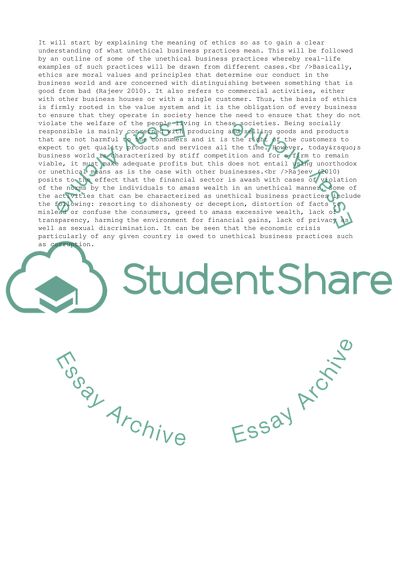Cite this document
(What Do We Mean by Unethical Business Practices Essay, n.d.)
What Do We Mean by Unethical Business Practices Essay. https://studentshare.org/business/1747628-what-do-we-mean-by-unethical-business-practices-illustrate-your-answer-using-examples-other-than-enron-or-child-labour-and-explain-the-criteria-for-your-choice
What Do We Mean by Unethical Business Practices Essay. https://studentshare.org/business/1747628-what-do-we-mean-by-unethical-business-practices-illustrate-your-answer-using-examples-other-than-enron-or-child-labour-and-explain-the-criteria-for-your-choice
(What Do We Mean by Unethical Business Practices Essay)
What Do We Mean by Unethical Business Practices Essay. https://studentshare.org/business/1747628-what-do-we-mean-by-unethical-business-practices-illustrate-your-answer-using-examples-other-than-enron-or-child-labour-and-explain-the-criteria-for-your-choice.
What Do We Mean by Unethical Business Practices Essay. https://studentshare.org/business/1747628-what-do-we-mean-by-unethical-business-practices-illustrate-your-answer-using-examples-other-than-enron-or-child-labour-and-explain-the-criteria-for-your-choice.
“What Do We Mean by Unethical Business Practices Essay”. https://studentshare.org/business/1747628-what-do-we-mean-by-unethical-business-practices-illustrate-your-answer-using-examples-other-than-enron-or-child-labour-and-explain-the-criteria-for-your-choice.


